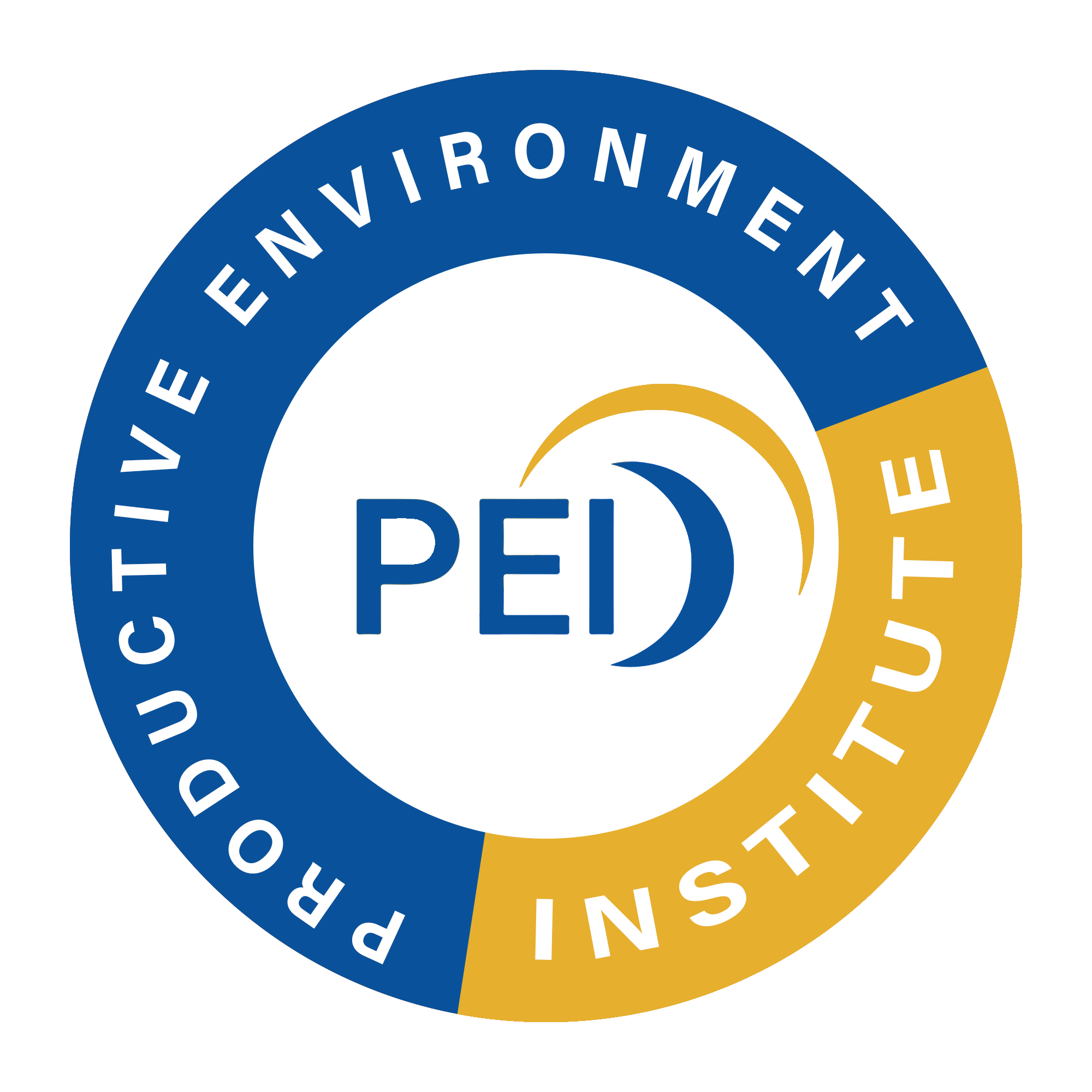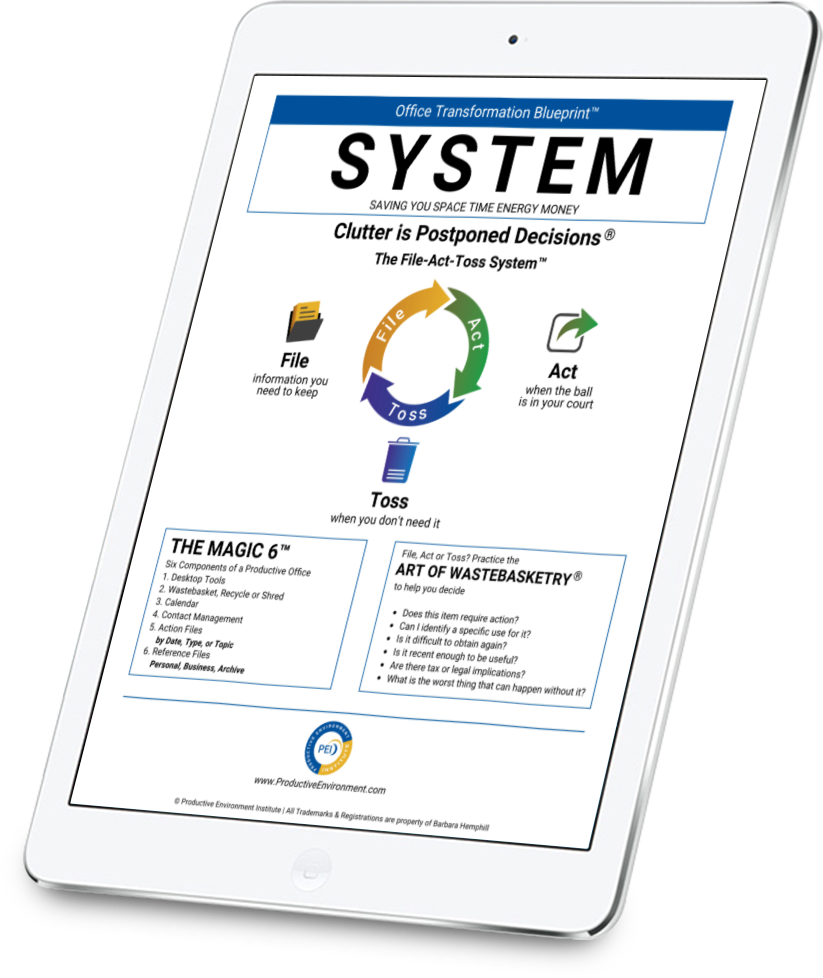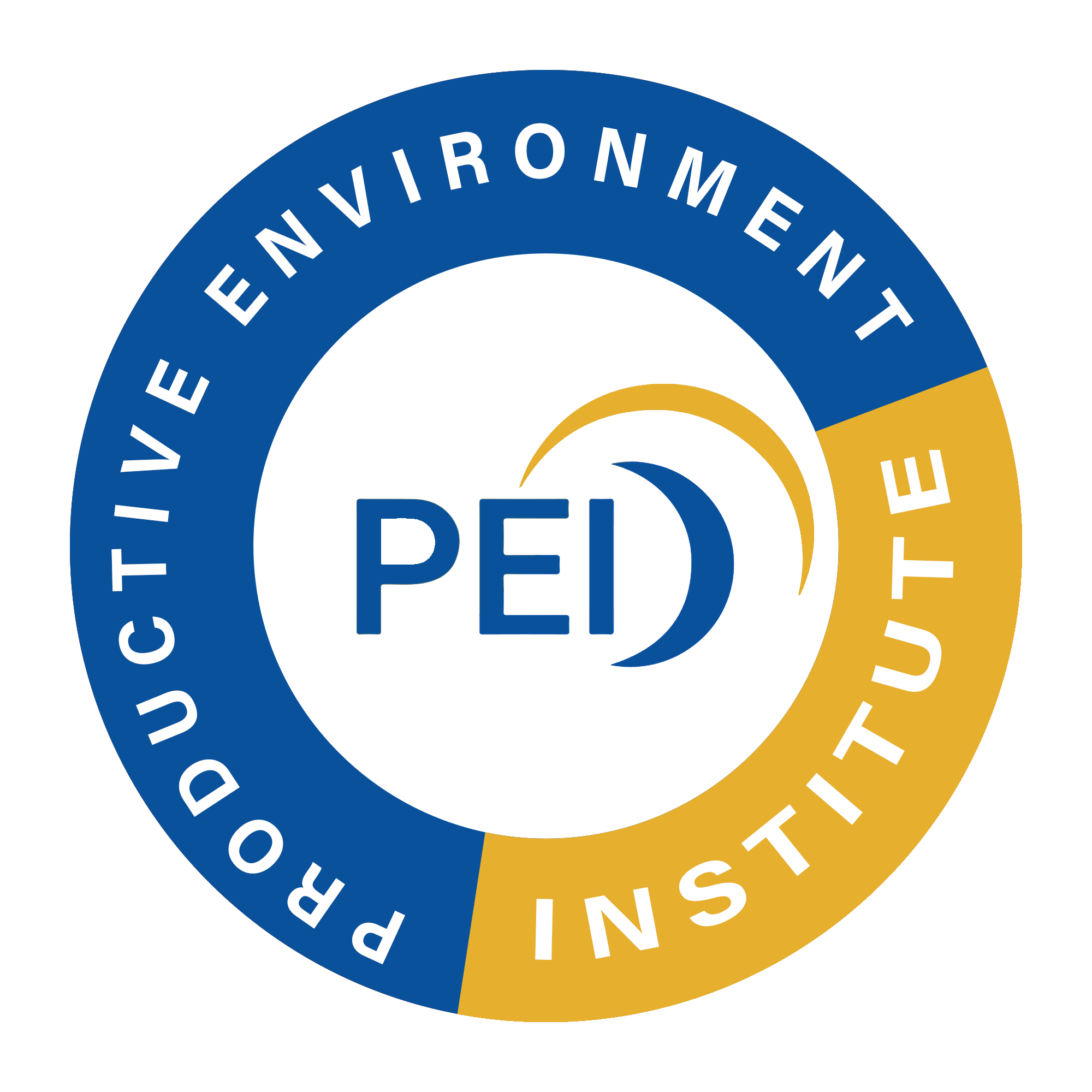Productive Environment Blog

To See Clearly, You Have To Be Looking | Kathy Muzik
“It’s a lack of clarity that creates chaos and frustration.” ― Steve Maraboli
A while ago, I wrote a post titled "Note to Self: Nix the Ostrich Method," where I confessed avoidance and fear of my weekly review. At the time, I had just completed an unprecedented streak of, count them, two consecutive weeks. Two weeks doesn't sound like an accomplishment, but it certainly was for me.
Today, I'm proud to announce I have done my weekly review for 29 consecutive weeks. Many thanks to my wonderful husband for his encouragement, accountability, and support. My process is a combination of elements from Franklin Covey, David Allen, and Michael Hyatt that I've personalized to work for me. My process has evolved slowly, and I'm happy to share what I've developed to give you a jump start customizing your own.
Also over these 29 weeks, I've received questions from friends and colleagues about my process. Most have asked, should they do a weekly review? When should their review happen? How long should it take? And what should they review? So, let's address those questions.
Should you do a weekly review?
Barbara Hemphill would say the question isn't should you do a weekly review? The more appropriate question is, will you do a weekly review? For a very long time, I wouldn't. It was a weekly source of fear and anxiety (hence, that whole avoidance thing). But with some refinement, it has become a weekly source of clarity, focus, and motivation for me. Twenty-nine weeks later, I can't imagine NOT doing it.
But, maybe a weekly process isn't right for you. Perhaps you should consider every two weeks, or once a month. Everyone's situation is different. I highly recommend exploring for yourself and developing a cadence that encourages you to keep at it.
When should you do your review?
Again, Barbara would say the question is, when will you do your review? I prefer to do mine on Sunday morning. But, if something important poses a conflict, I don't cancel my review, I move it.
Only you know the best day and time for you. And, keep in mind, that could change. So don't be afraid to adapt and be flexible.
How long should it take?
You know the drill. How long will you take to complete your review? As I suspected in my original post, the more consistently I did my weekly review, the less time it took.
In the beginning, my process could take four hours (or more). The main driver that made it so long and drawn out is that I was "doing" tasks when I was supposed to be "reviewing" them. This fragmented my focus, and unnecessarily extended the length of the process. I was unwilling to do a review that took that long, so I just didn't do it.
After much experimentation and refinement, it now generally takes less than an hour and a half. For full transparency, added in front of that hour and a half, is something I call my Hour4Output. This is where I batch a myriad of 2- to 10-minute tasks. Throughout the week, I put tasks onto this list because I know I've set the time aside to accomplish them. Also, during the Hour4Output, I process lingering notes I've taken during the week. Even with all of this, the Hour4Output often takes less than an hour. Adding the Hour4Output before my weekly review allows me to stay focused on reviewing, not doing. And I get the added bonus of removing items from my task manager before the review process starts!
Overall, I've reduced the time it takes for my weekly review from four hours (or more) down to two and a half hours (or less). I schedule three hours, and it is some of the most productive and valuable time of my week. Because it usually takes less than three hours, I use the extra time to meditate, read, or do something else enjoyable. Which helps to reinforce my positive association with the process.
What should you review?
You already know what I'm going to say. What will you review? I have adjusted this multiple times. Ultimately, this is what I have designed into the processes I now call my Hour4Output and Weekly Spotlight:
Hour4Output (1 hour or less)
Complete two- to ten-minute tasks.
Process remaining notes from the week and add action items to my task manager.
Re-supply notepaper. (Yes, I still prefer taking paper notes.)
Weekly Spotlight (1.5 hours or less)
Calendar
Review the past week and add action items to my task manager.
Review the upcoming week and log personal appointments & events in my planner.
Update business plan tasks for the upcoming week.
Task Manager
Process the Inbox.
Review the Waiting list. Update and add follow-up dates.
Review the Scheduled list for items in the upcoming week.
Review all active projects. Adjust and schedule action items.
Review inactive projects for those transitioning to active during the upcoming week.
Review goals and log progress.
Review personal mission and core values.
Review my perfect week. (Note: This is based on Michael Hyatt's concept of your ideal week. It's like a budget for your time.)
Similarly, I do a Quarterly review on the last Sunday of every quarter along with the Hour4Output and the Weekly Spotlight.
Quarterly Spotlight (2 hours or less)
Review three-year goals and adjust as needed.
Review annual goals and adjust as needed.
Review quarterly goals and adjust as needed.
Review my perfect week and adjust as needed.
Review daily routines and adjust as needed.
So there it is! My personal weekly (and quarterly) review processes. In conjunction with my daily routines, I have full confidence nothing is falling through the cracks.
How confident are you? Maybe it's time to really establish (and actually do) a periodic review of your own.
Photo by Haneen Krimly on Unsplash
Meet Our Team of Experts

BARBARA HEMPHILL
FOUNDER
Productive Environment Institute

ANDREA ANDERSON
CEO
Productive Environment Institute
CONTACT US
Use the Contact button on this page or
Leave a Voicemail @



